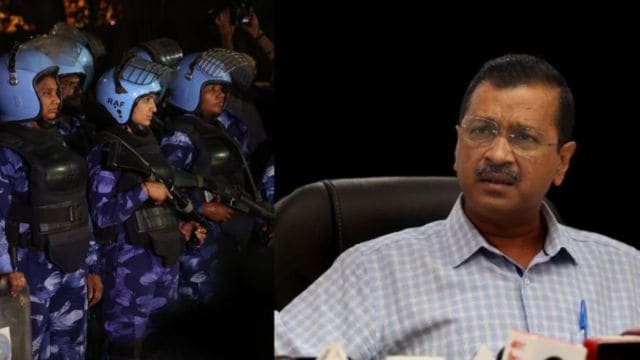The Enforcement Directorate (ED) on Thursday conducted an extensive search at Chief Minister Arvind Kejriwal’s residence at the Civil Lines in Delhi. The search was carried out in connection with the alleged liquor policy scam.
Giving details on the development, Delhi Minister Saurabh Bharadwaj underlined the absence of any incriminating evidence, proof, or money trail. He claimed that the probe agency found just Rs 70,000 in cash, which was also returned.
“The Chief Minister’s house was searched. They just found Rs 70,000 in cash and returned it. They have taken the Chief Minister’s mobile and arrested him. They haven’t got any proof, evidence or money trail,” Bharadwaj told reporters, in a video posted by news agency ANI on X.
The agency returned the seized cash after the search at CM’s residence. Kejriwal was arrested by the 12-member ED team late on Thursday.
Many firsts in Kejriwal’s arrest
Arvind Kejriwal’s arrest marks the first instance of a sitting CM facing such charges. The development came in the backdrop of the Delhi High Court’s decision to deny him protection from coercive measures by the ED.
In response to the ED’s action, the Aam Aadmi Party (AAP) has announced a nationwide protest on Friday against the Bharatiya Janata Party (BJP), characterising CM’s arrest as an assault on “democratic principles”.
Meanwhile, several opposition leaders condemned the arrest as an affront to constitutional norms and termed it as the ‘murder of democracy’.
Allegations and scrutiny of excise policy
The case encompasses the allegations around corruption and money laundering related to the formulation and execution of the Delhi government’s excise policy for the fiscal year 2021-22, which was later scrapped.
Notably, prominent AAP leaders such as Manish Sisodia and Sanjay Singh have already been arrested in the liquor case.
Both the ED and the Central Bureau of Investigation (CBI) have accused the Delhi government’s excise policy of fostering favoritism and enabling cartelisation within the liquor industry.

